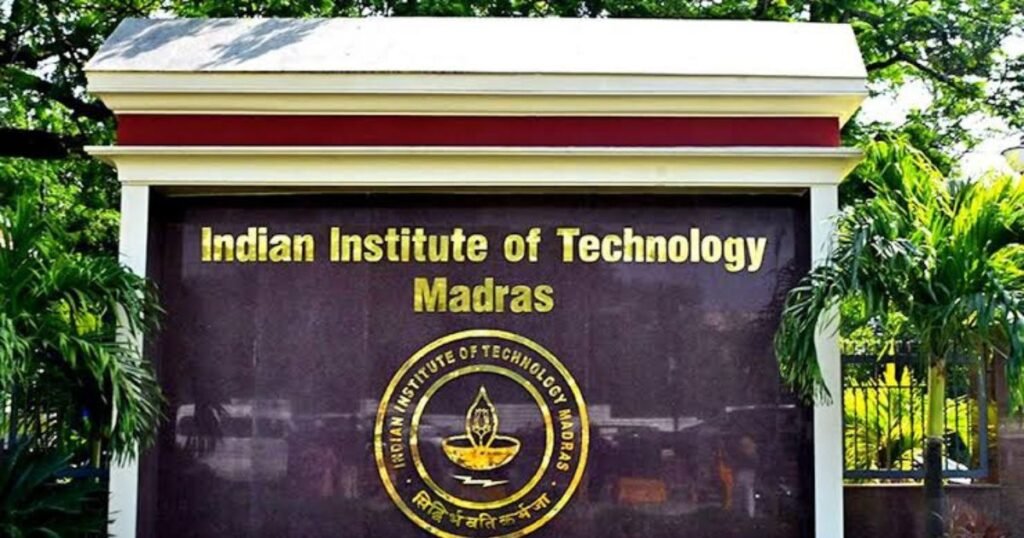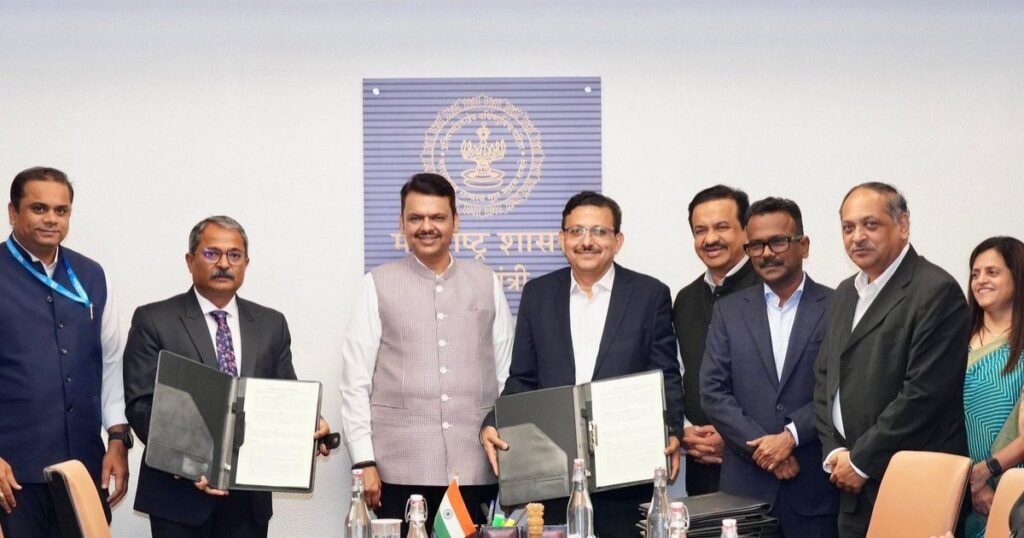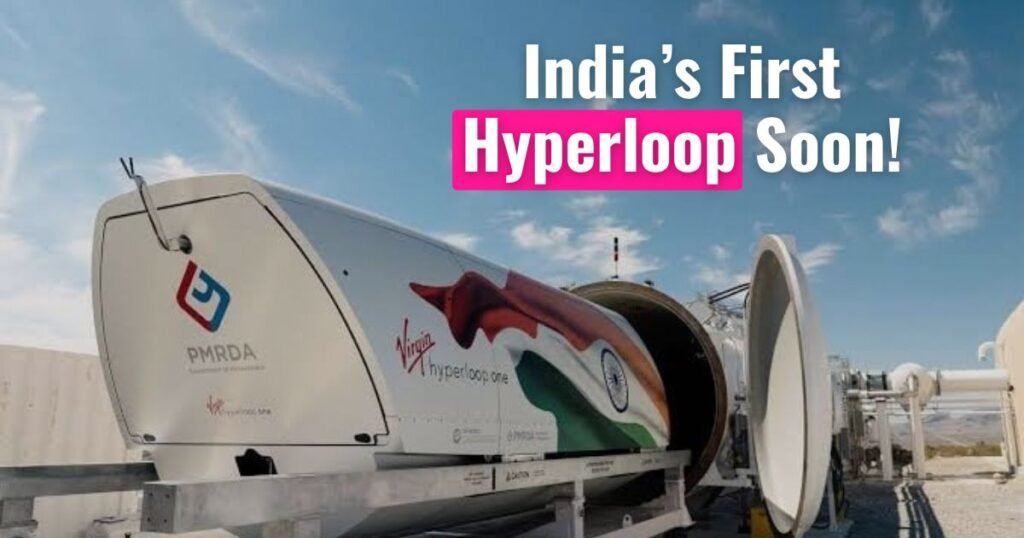By Mehwish Khan | New Delhi | August 22, 2025, 12:31 PM IST
Maharashtra has taken a bold step into the future of transport and logistics. The state government has signed a landmark agreement with TuTr Hyperloop Pvt Ltd, a deep-tech startup incubated at IIT Madras, to develop a Linear Induction Motor (LIM)-based hyperloop system connecting Jawaharlal Nehru Port Trust (JNPT) in Navi Mumbai with the upcoming Vadhavan Port in Palghar.
This makes Maharashtra one of the world’s first government-backed hyperloop testbeds, placing India firmly on the global map of futuristic transport technology.
What the Maharashtra Hyperloop Project Means?
Hyperloop — first proposed by Elon Musk in 2013 — is a revolutionary high-speed transport system where pods carrying cargo or passengers travel inside low-pressure tubes at airline-like speeds of over 1,000 kmph. By nearly eliminating air resistance and using propulsion technologies like magnetic levitation and LIM, hyperloop promises faster, cleaner, and more energy-efficient transport.
Globally, hyperloop is still experimental, with pilot tracks in the US, Europe, and the Middle East. No country has yet built an operational corridor. Maharashtra’s pact with TuTr Hyperloop therefore makes it a pioneer in real-world hyperloop logistics, particularly for port-to-hinterland cargo movement.
Why JNPT and Vadhavan?
• JNPT (Jawaharlal Nehru Port Trust) in Navi Mumbai handles over 55% of India’s containerized cargo. Congestion on roads and rail often delays shipments, increasing logistics costs. A hyperloop cargo corridor could cut travel time from hours to minutes.
• Vadhavan Port, a planned deep-draft maritime hub in Palghar, is designed to handle 250 million tonnes annually, including the world’s largest container vessels. Integrating hyperloop into its design makes it a future-ready port, positioning it among Asia’s most advanced.

TuTr Hyperloop: Made in India Innovation
TuTr Hyperloop, founded by IIT Madras researchers and engineers, is one of the few Indian startups working on indigenous hyperloop technology. With support from IIT Bombay and government backing, this will be TuTr’s first major applied project, showcasing India’s ability to develop and scale deep-tech mobility solutions rather than import them.
“Devendra Fadnavis on the Future of Transport” – Maharashtra Deputy CM Devendra Fadnavis hailed the pact as a milestone:
“Hyperloop is not just a transport system — it is a disruptive idea that can redefine logistics, mobility, and India’s economic geography. With IIT Bombay and IIT Madras onboard, Maharashtra will lead India in testing and scaling this transformative technology.”
He also reiterated the government’s commitment to provide end-to-end support for futuristic projects, part of a larger strategy to make Maharashtra a hub for digital economy, green energy, and advanced infrastructure.
Hyperloop Within a Bigger Investment Push!
The hyperloop pact was one of 10 MoUs signed by Maharashtra worth ₹42,892 crore, expected to generate nearly 26,000 new jobs across multiple sectors:
Data Centres: Investments by Prestige Estates (₹12,500 cr), Webmint Digital, Rovison Tech Hub, Rochak Systems.
Renewables: Jupiter International (₹10,900 cr solar panels), LNK Green Energy (₹4,700 cr green power).
Heavy Industry: Vow Iron & Steel (₹4,300 cr), Atlas Copco (₹575 cr)
Real Estate & Logistics: Multiple large-scale developments.
While these investments strengthen Maharashtra’s push as India’s data capital and a green manufacturing hub, the hyperloop project clearly stood out for its visionary scale and disruptive potential.

Why This Matters for India’s Logistics Future?
India’s logistics costs are among the highest in the world (around 13–14% of GDP vs. 8–9% in developed economies). Congestion at ports, bottlenecks in rail/road networks, and long transit times impact competitiveness.
By enabling ultra-fast, sustainable cargo transport, the Maharashtra hyperloop corridor could:
• Cut logistics costs dramatically
• Improve supply chain efficiency
• Position India as a global leader in next-gen infrastructure
• Attract foreign direct investment in deep-tech mobility
Final Word
Maharashtra’s decision to back India’s first hyperloop project marks a turning point in the country’s infrastructure, startup, and logistics ecosystem. If successful, the JNPT–Vadhavan hyperloop corridor could become a model for global ports — and a symbol of India’s leap into futuristic transport technology.
MUST READ:
https://startupbydoc.com/mitra-raises-%e2%82%b914-cr-bridge-round-to-fuel-fmcg-production-expansion/: Maharashtra Signs Historic Pact With IIT Madras Startup to Build India’s First Hyperloop Cargo Corridor

